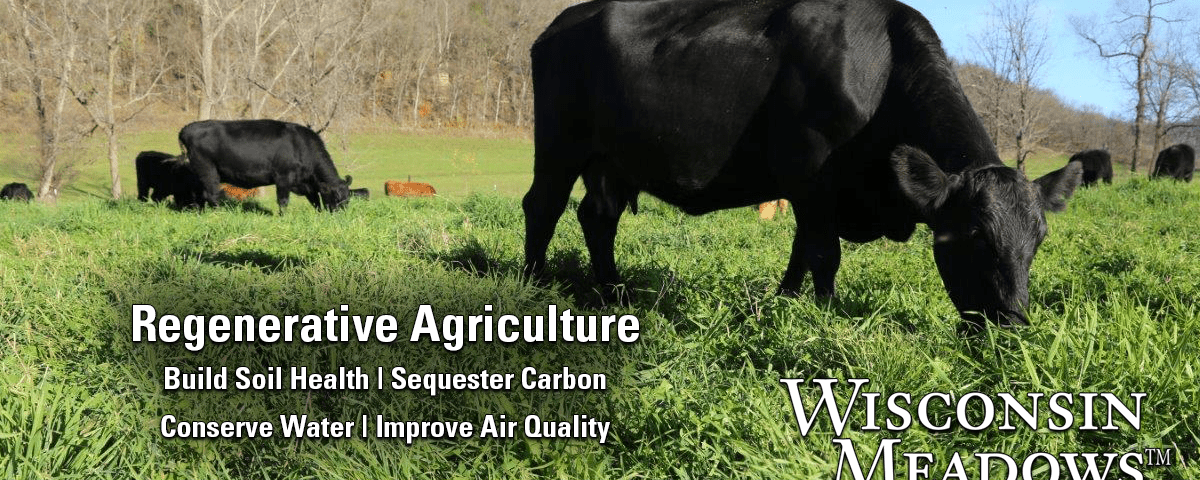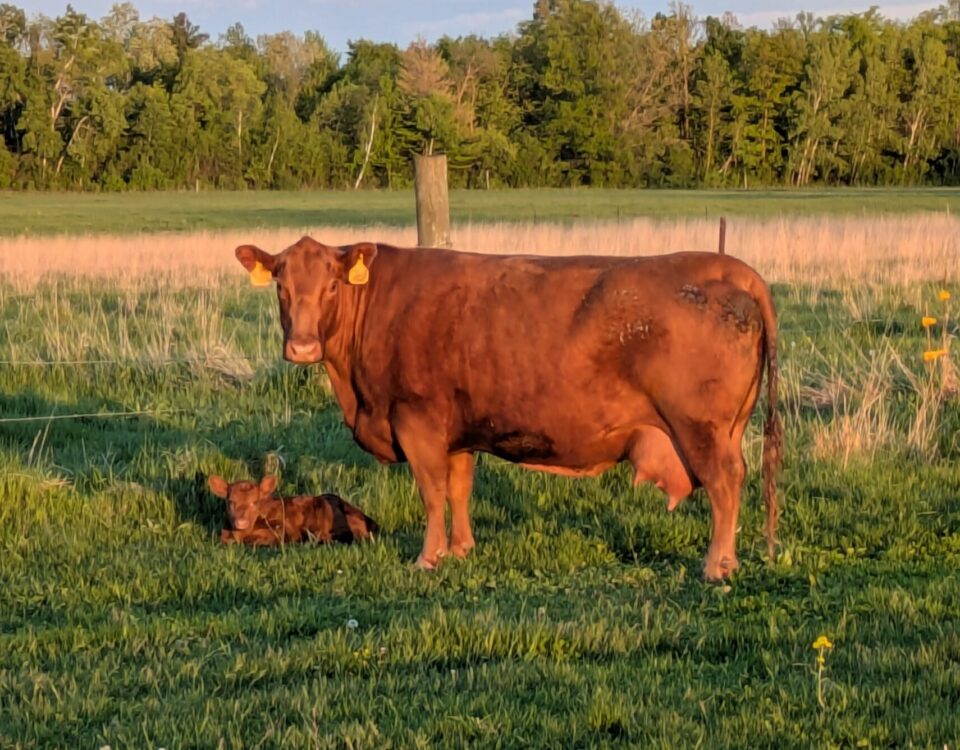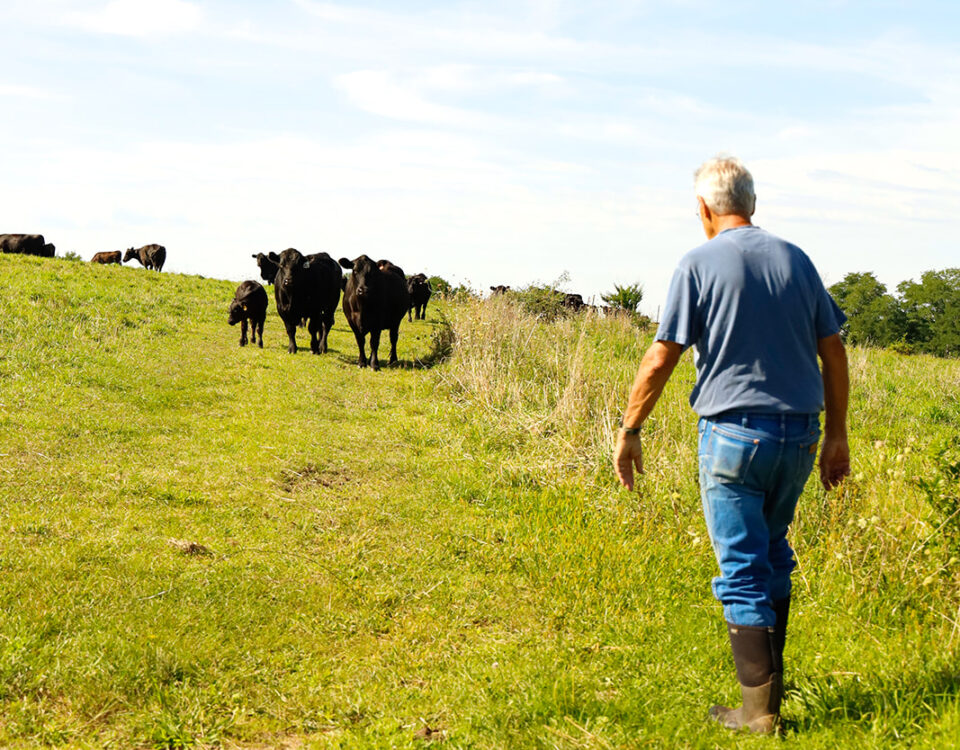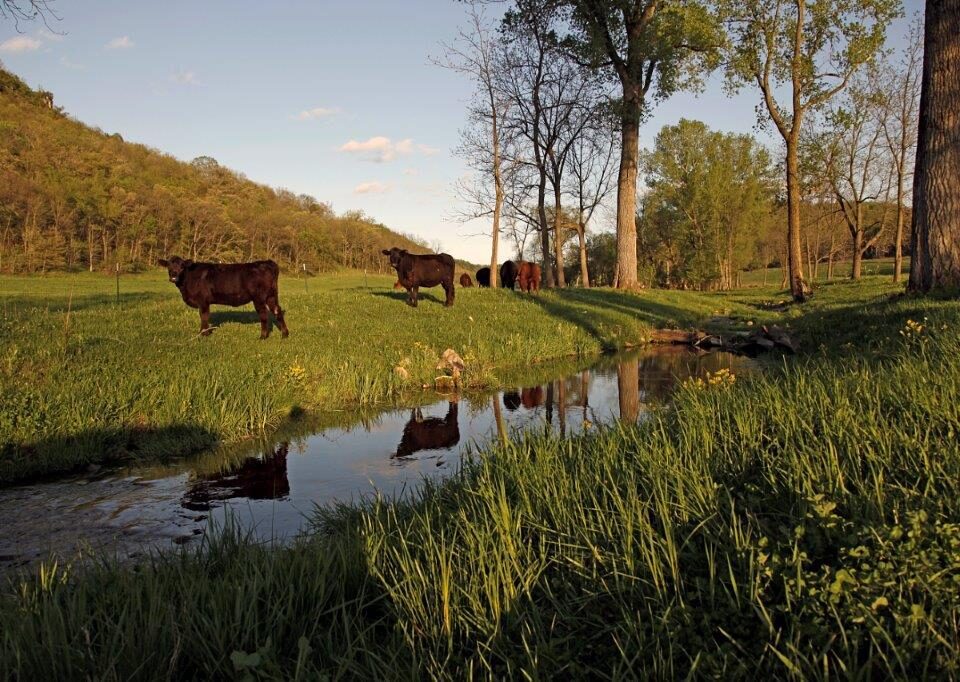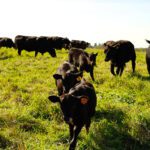
Raising Animals Holistically Promotes Maximum Health
October 24, 2023
Health Benefits of Eating Grass-fed Beef
November 20, 2023You might think of us as beef and pork producers – after all, we are the “Wisconsin Grass-fed Beef Cooperative.” But that’s not quite right. What our members produce – using regenerative methods – are actually healthy, well-managed grass-based perennial pastures that build soil health, improve water quality, provide wildlife habitat, and help to keep sequestered carbon in the soil where it belongs!
There is no question that well-managed, pasture-based grasslands are better for the environment than even no-till row cropping. Our members’ pastures improve water quality, reduce flooding, promote biodiversity, and do not contribute to climate change by releasing greenhouse gasses stored in the soil. When corn and soybean fields that produce feed for conventionally-raised beef and pork are converted to regeneratively-managed perennial pastures, water quality improves and flooding decreases. Plus, wildlife habitat is created for animals such as waterfowl. What’s more, the greenhouse gasses that are released as the result of annual corn and soybean planting are instead “sequestered” in the soil.
Our members – in partnership with folks like Grassland 2.0 and Grassworks – are actively keeping Wisconsin’s rural areas healthy, beautiful, clean, and full of a diversity of wildlife. We are stewards of our lands in the best possible way. And when you buy Wisconsin Meadows pastured-pork and 100% grass-fed beef, you are directly contributing to that stewardship by helping our members continue to grow abundant, high-quality pasture for their animals that keep Wisconsin waterways and wetlands clean and healthy, provide habitat for birds, pollinators, and other organisms, and are an important part of climate solutions.
By: Josh Miner, Wisconsin Grass-fed Beef Cooperative

